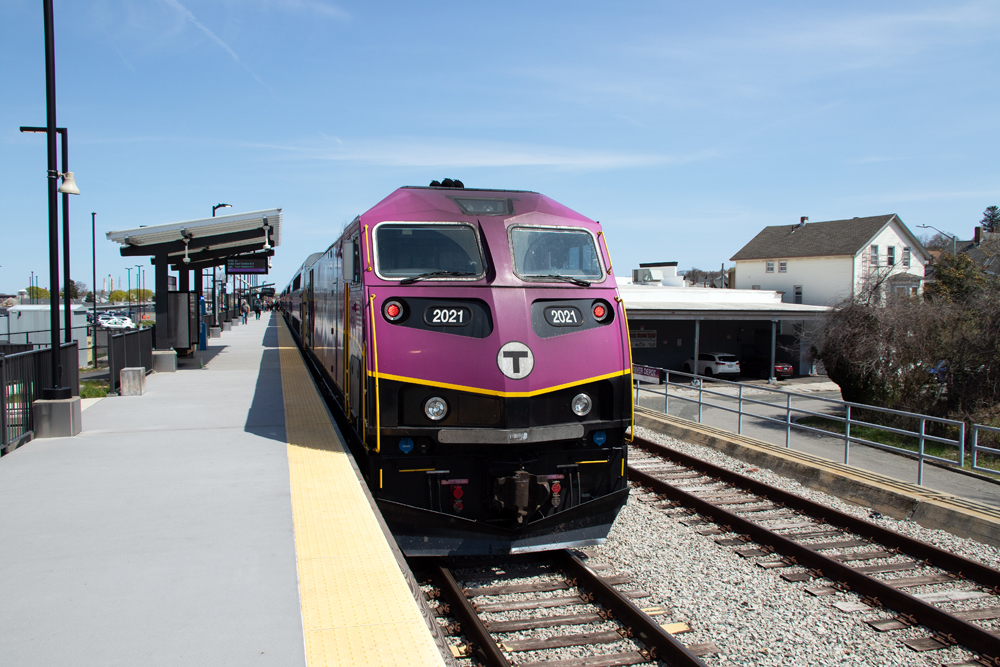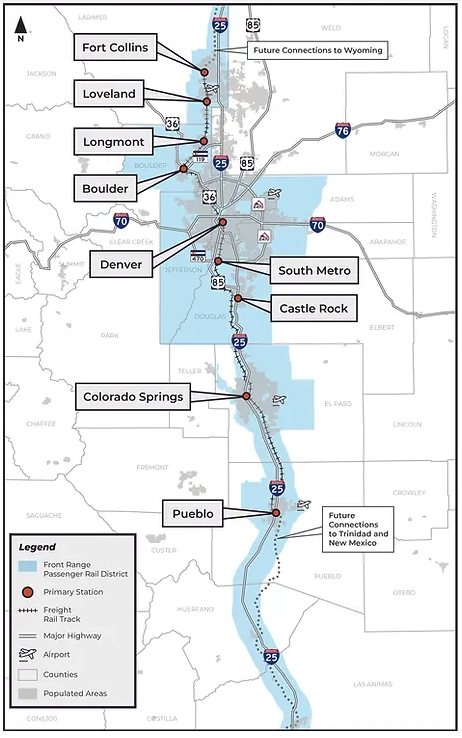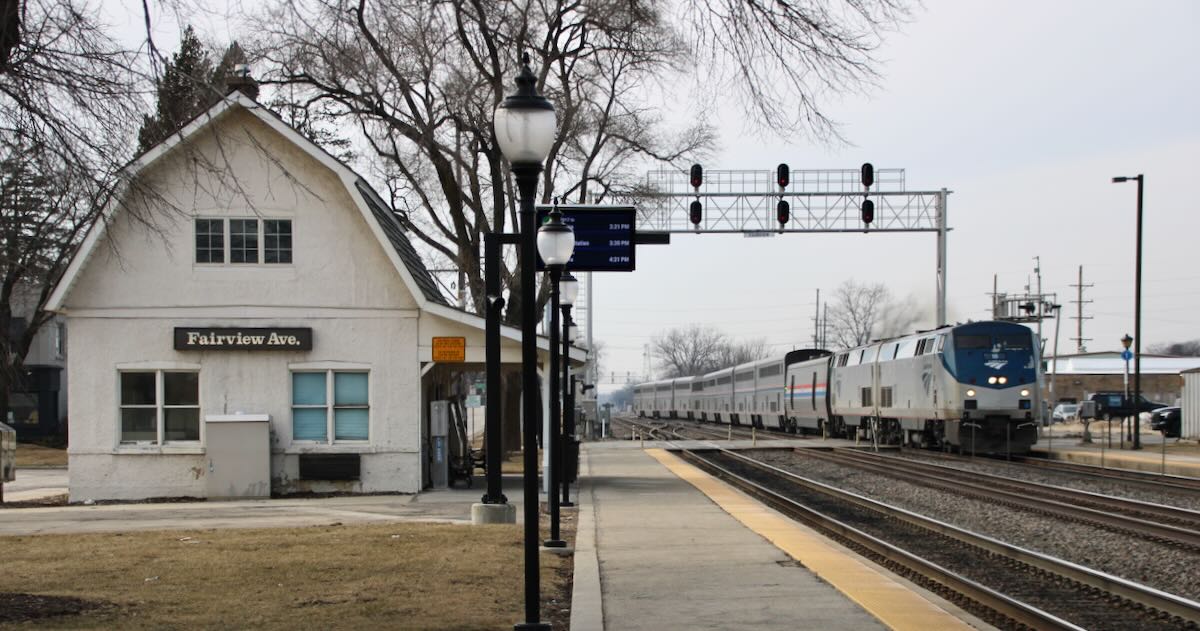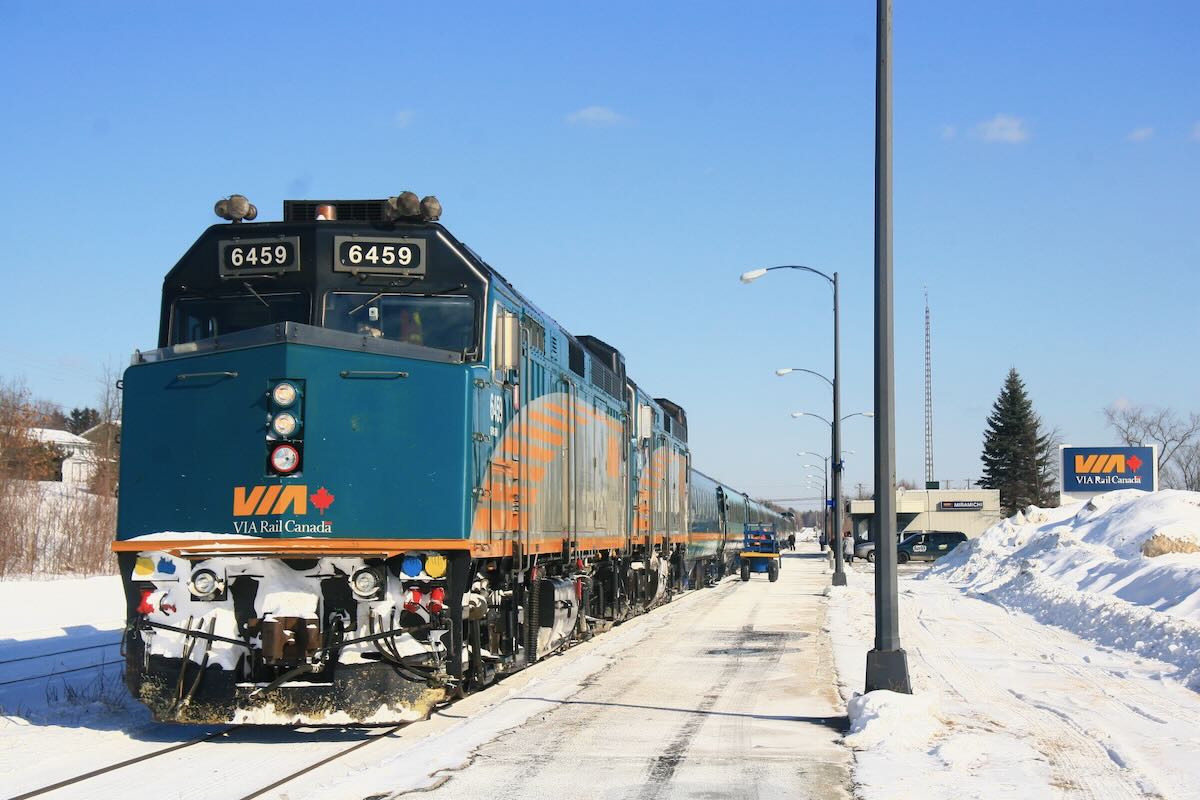
WASHINGTON — Trump administration proposals to eliminate two sources of federal funding for mass transit have drawn sharp criticism from two transit advocacy groups.
The proposals were reported by Politico Pro on Nov. 14 in a paywalled article, citing internal Department of Transportation memos obtained by the news site. One calls for ending an account within the Highway Trust Fund that funds transit, and would divert that money into highway projects; the other would eliminate the Federal Highway Administration’s ability to fund transit projects, and would block states from using highway money for transit. The two proposals would eliminate billions of dollars in funding, according to Politico.
Paul P. Skoutelas, CEO of the American Public Transportation Association, urged President Trump to reject the “misguided” proposals in a Nov. 14 statement.
“These reckless proposals would devastate Americans in cities, suburbs, and rural communities across the country — cutting off critical transit services that provides access to jobs, health care, and education,” Skoutelas said. “President Trump is a builder and knows smart investments — every $1 invested in public transit generates $5 in long-term economic returns and 77%of Federal investments flow to the private sector.”
On Monday (Nov. 17), Steve Davis, director of Transportation For America, said in a lengthy statement that the proposals “will annihilate state and local transportation, strand millions of Americans who depend on transit every day in red and blue states alike, produce chaos and increase congestion, seize control from states, and utterly fail to actually solve our most pressing long-term transportation funding issues.”
Davis’ statement notes that transit funding from highway funds dates to 1982, when the federal gas tax was raised from 4 to 9 cents, with 20% of all gas-tax funds permanently devoted to transit. “This historic practice — enshrined in a bipartisan deal approved by President Ronald Reagan — has continued for 43 years with broad support in Congress and amongst stakeholders, including the association representing state departments of transportation (AASHTO).”
The ability to shift, or “flex,” federal highway money for transit was highlighted in 2024 when Pennsylvania Gov. Josh Shapiro transferred $153 million in highway money to avert service cuts and a 29% fare increase planned by the Southeastern Pennsylvania Transportation Authority to address a budget deficit [see “Pennsylvania governor’s move averts …,” Trains.com, Nov. 23, 2024].
— To report news or errors, contact trainsnewswire@firecrown.com.














Otherwise reasonable persons continue to bandy-about the misnomer “communist”…the fact of the matter is that NY’s mayor-elect is in no position to eliminate bus fares. The MTA, which runs the busses, is controlled by the gov. Kathy H. and she has made it clear there will be no freebies. We ride both bus and subway and observe little fare beating on the latter, but plenty on the bus, since it is much easier to do.
Interesting Charles, but what about the elephant in the living room the HTF??
That’s a fair, valid question, Galen. You’re right, you are on point. I should know more about HTF than I do know or that I want to know. You win on that one.
Do they think this will get the HTF out of the financial pit that the politicians & drivers put it in? This would only be a blip on the financial stats the HTF has been bankrupt since 2008 siphoning $100’s of billions from the Treasury to pay for more hwys & expansion of existing roads. What’s the favorite mantra of the fiscal conservatives..”don’t spend money you don’t have” what happened to all the concern about the deficit? Obviously that’s only applies to other programs not deemed as “important”. Currently drivers are now covering less than 50% of the cost of their rides but they expect transit riders to pay the full cost of theirs, typical America narcissists. Drivers are not covering the cost of their drives, the population of this country has leveled off, birthrates are down, traffic patterns have changed, yet they keep expanding hwys like it’s the 60’s. The RR’s overbuilt in the early years but soon started abandoning (continue to) over time. We’ve overbuilt hwys & now have no plan other than this make them self sufficient as they were suppose to be. The Feds needs to get out of the transportation business which they obviously have neither the skill nor the discipline to manage sell off or lease out the interstates to toll operators, turn over the remainder of the roads to the states to charge what is “needed” to maintain them. This will likely make the states more fiscally responsible than they are now with the 80/20 bargain deal. The current “no plan” plan is unsustainable!
GALEN — Thanks for your post. I reply:
Speaking as one conservative, speaking for myself, I DO NOT EXPECT transit riders to cover 100% of costs. (I myself have ridden subsidized Amtrak and subsidized METRA several times this year.) What I expect is the following:
(1) Subsidies to be reasonable and costs controlled. Including pensions.
(2) Fare jumping not tolerated.
(3) Local transit to be funded by local or state governments or regional taxes, not federal.
(4) No more Mickey Mouse projects where failure is inevitable, like the late, unlamented Minneapolis commuter train.
(5) Zero tolerance of the crime that is destroying public transit. Anyone who assaults or injures another patron should be severely punished.
But how else to pay for the tax cuts the Oligarchs are about to receive?
Call it what you want: inconvenient, inappropriate, catastrophic, ill thought through, mean-spirited, or anything else. The two terms I would use are “inevitable” and “a long time coming”. BTW this affects me, also. I ride transit, not on a regular basis but several times each year.
The states and the cities don’t have enough money for local transit and have run out of taxes to raise. For DeeCee, that’s no problem. DeeCee prints money, by the trillions each year. Some of the printed money goes to states and localities for purely state and local needs.
The transit districts have hardly helped their own cases by tolerating (or even encouraging) fare jumping. Or in the case of Communist-ruled New York, proposing to eliminate fares altogether. Furthermore, the non-deniable gap between public-sector vs. private-sector wages and pensions for similar skill levels seems to be growing.
Anybody with foresight could have seen this coming. Not if but when.